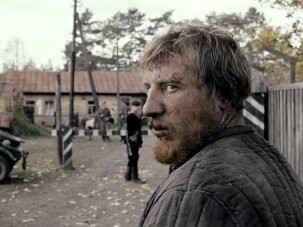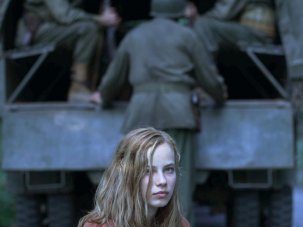from our July 2013 issue
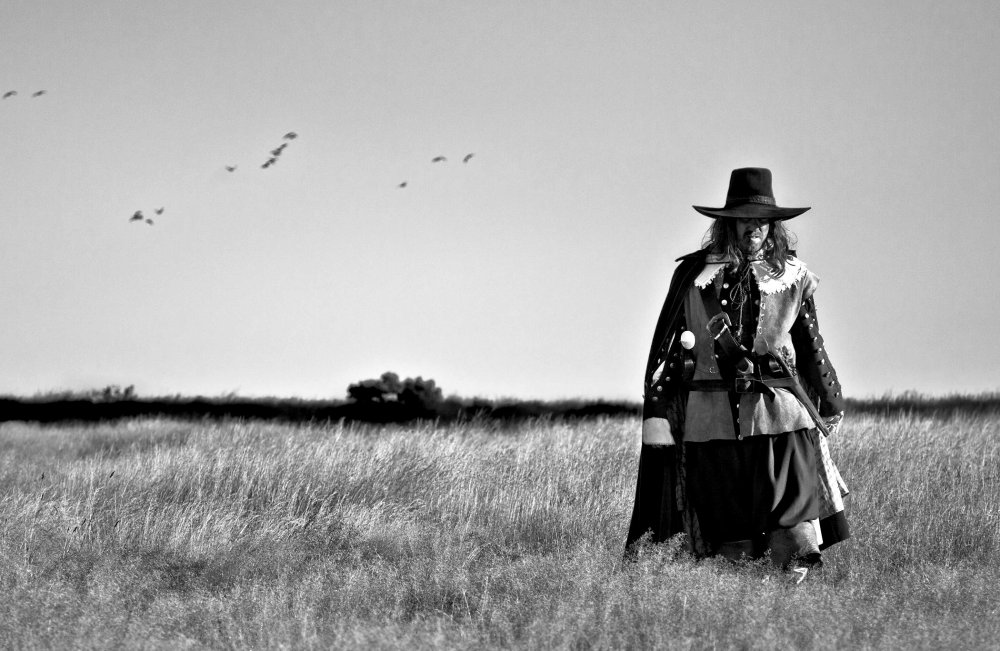
On the basis of three features in four years – Down Terrace (2009), Kill List (2011) and Sightseers (2012) – Ben Wheatley has established himself as one of the most audaciously original of British directors, with a penchant for left-field genre-splicing that’s earned him a loyal fan-base. Even the most enthusiastic of his fans, though, may find themselves taken aback by his latest film, which is receiving a simultaneous release in cinemas, on DVD, on Freeview TV and Video on Demand – an unprecedented move that could either be seen as overweening confidence on the part of the distributors, or as a prudent bid to cover all the bases.
|
United Kingdom 2013 Crew Cast In Black and White Distributor Picturehouse Entertainment Release date 5 July in UK cinemas and on DVD, Blu-ray, VoD and Freeview. |
A Field in England starts with a fragmented vision of chaos. We hear smoke, shouts, shots, explosions, while the camera performs a frantic kick-bollock-and-scramble representing, we soon discover, the subjective viewpoint of a man called Whitehead (Reece Shearsmith) escaping from a battle in the English Civil War. Along with two other reluctant combatants, Jacob (Peter Ferdinando) and Friend (Richard Glover), he’s led by a saturnine character called Cutler (Ryan Pope) to a huge field surrounded by a ring of mushrooms and presided over by the swaggering O’Neil (Michael Smiley), a self-declared alchemist who sets his three recruits, or captives, to unearthing the great treasure he claims is buried there.
This summary makes the film appear a good deal more coherent than it is. Wheatley and his regular writing partner Amy Jump throw in much that’s oblique, much that’s obscure and a lot that’s downright weird. To enter the field, the four men, straining tug-of-war-style along a rope, are lugged in by some superhuman force that’s possibly (a quick cut never quite reveals) linked to O’Neil.
In order to turn him into a human metal detector or divining rod, O’Neil takes Whitehead into his tent, inside which we hear Whitehead screaming horribly. (Shearsmith, with his League of Gentlemen background, gives very good scream.) A pouchful of rings and some runic stones figure at certain points, though their exact significance is left unclear – as is Whitehead’s reputed skill at lacemaking.
We get a smidgen of backstory. Whitehead is apprenticed – or so he says – to an alchemist in Norfolk, from whom O’Neil stole valuable manuscripts, and is charged with retrieving them; he more than once insists that he’s not a soldier. Which side of the conflict the men are on isn’t obvious: there’s something of the cavalier about O’Neil’s costume and manner, while Friend, with his leather helmet, looks the most like a Cromwellian footsoldier.
But the war isn’t an issue here, and is scarcely mentioned. The dialogue occasionally aims for period fustian – “Your privy parts are doomed, homunculus,” roars an officer at the fleeing Whitehead, before being conveniently run through with a spear – but most of the time sticks to vernacular functional.
One possible reading, supported by certain lines of dialogue – “There are only shadows here,” “You are nothing more than an envelope” – could be that some or all of the characters are already dead, killed on the battlefield. Another, that Whitehead hallucinates the whole thing after stuffing his face with magic mushrooms and seeing a huge roiling black planet about to engulf the Earth.
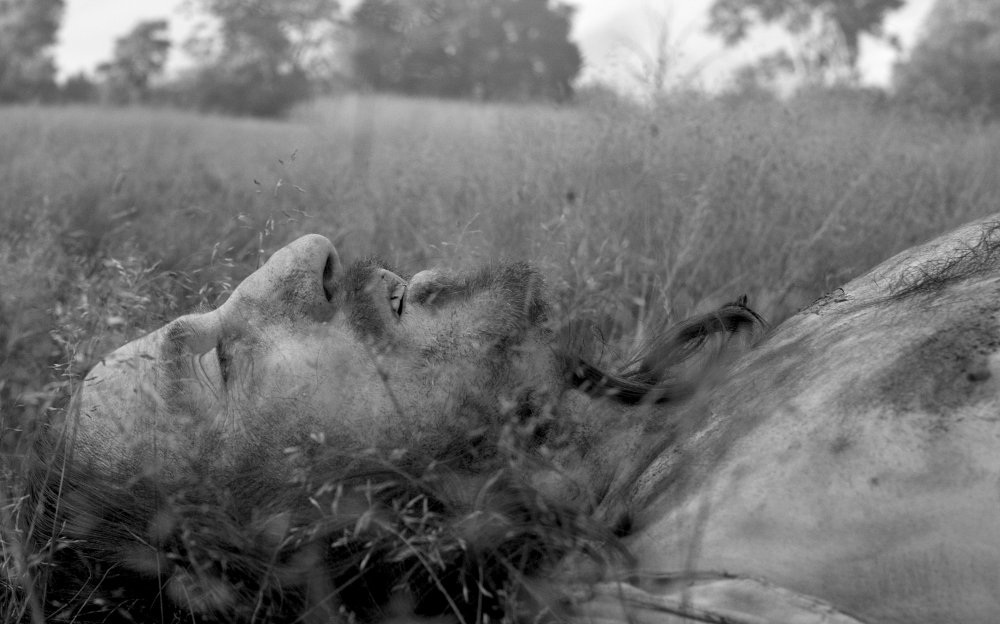
But for all its ominous portents, there are hints that the film isn’t taking itself 100 per cent seriously; as ever with Wheatley, black humour lurks in the corners. Jacob, taking an alfresco shit, gets his genitals stung by nettles, and we’re granted a huge close-up of the afflicted parts when Whitehead applies a soothing herbal poultice. Having been shot, the dying Friend tearfully begs his companions to take a message to his wife; it begins, “Tell her I hate her.”
Laurie Rose, Wheatley’s regular DP, brings to the film the same charged feel for landscape he so potently demonstrated in Sightseers. Once again he’s shooting in widescreen, though this time in monochrome to match the doomy mood – a mood abetted by Jim Williams’s spare, percussive score.
There are echoes here and there: the opening battle, thriftily conveyed through smoke and sound effects, recalls Peter Watkins’s similarly minimal devices in Culloden (1964), and Michael Smiley’s O’Neil, in his baleful arrogance no less than in his costume, evokes memories of Vincent Price’s title role in Witchfinder General (1968). But even more than in Wheatley’s previous work, the feeling here is of a filmmaker exhilaratingly striking out on his own idiosyncratic path – and perhaps not caring too much whether he’s bringing all his public along with him.
And in the July 2013 issue of Sight & Sound
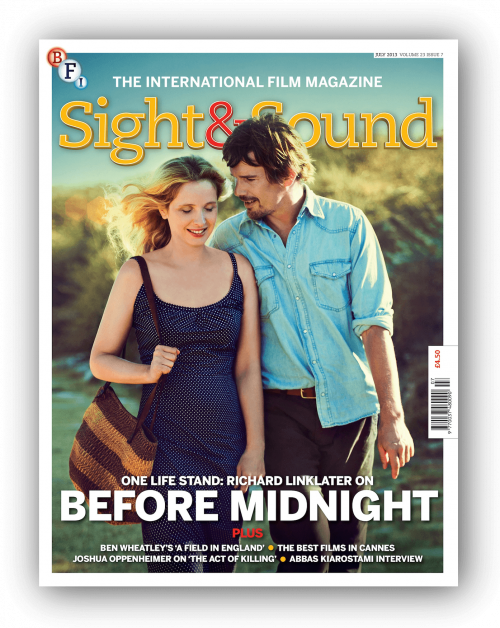
This spectred isle
A Field in England belongs to a rich and varied tradition in British cinema of films that tap into the mysteries, magic and dark forces of our countryside, writes Kim Newman.
The numbers
Charles Gant reports on A Field in England’s groundbreaking simultaneous release in UK cinemas and on DVD, VoD and Freeview.





